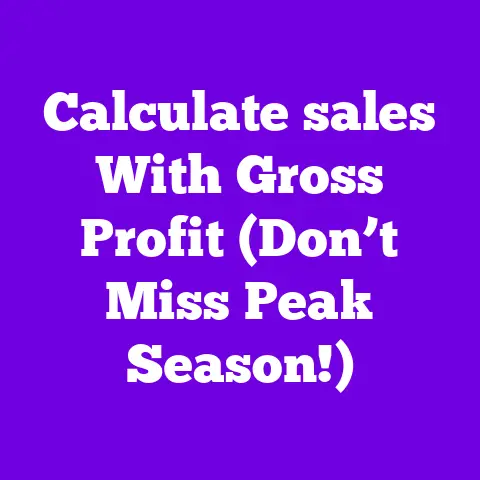For Sale By Owner? (Realtors HATE This!)
Picture this: a struggling single father, Chris Gardner, portrayed by Will Smith, is doing everything he can to make ends meet while juggling his responsibilities as a parent and an aspiring stockbroker.
In the film “The Pursuit of Happyness,” Chris’s determination to claim his own future resonates deeply with anyone who has ever faced adversity.
His journey is a testament to independence, showing that sometimes, the best path is the one you carve out for yourself.
Similarly, many homeowners are now taking the reins in the real estate market by choosing to sell their properties without a realtor—a movement known as For Sale By Owner (FSBO).
As the FSBO trend continues to gain momentum, more and more sellers are discovering the financial benefits of bypassing traditional real estate agents.
By listing their homes independently, they can save thousands on commission fees, which typically range from 5% to 6% of the sale price.
This appeal is particularly strong in an era where home prices are at an all-time high, and sellers are eager to maximize their profits.
However, the rise of FSBO sales has created a rift between those who embrace the model and realtors who feel threatened by the potential loss of business.
In this article, I’ll explore the FSBO movement in depth, examining its historical context, the benefits and challenges faced by sellers, and the contrasting perspectives of realtors.
As we delve into this fascinating topic, we’ll uncover how the FSBO approach is changing the landscape of real estate and what it means for homeowners contemplating the sale of their properties.
The Rise of the FSBO Movement
To fully appreciate the FSBO movement, it’s important to consider its historical context.
Traditionally, real estate agents played a pivotal role in the home-selling process, offering their expertise in pricing, marketing, and negotiating.
However, as the internet began to revolutionize the way we buy and sell goods, the real estate industry saw significant changes.
In the late 1990s and early 2000s, online listing services emerged, allowing homeowners to take control of their property sales.
The introduction of platforms like Zillow, Redfin, and Craigslist provided a venue for FSBO sellers to reach a wide audience without the need for realtor representation.
Fast forward to today, and the technological advancements that have emerged since the early days of the internet have only intensified the FSBO trend.
Social media platforms, such as Facebook and Instagram, allow sellers to market their homes to their networks and beyond, often with minimal cost.
Digital tools like online calculators and virtual tour software help homeowners present their properties professionally, making it easier than ever to navigate the sales process independently.
Statistics indicate that the FSBO market has been growing steadily.
According to the National Association of Realtors (NAR), around 8% of home sales in the U.S.
were FSBO transactions in 2022, a number that has remained relatively consistent over the years.
While this figure may seem modest, it represents a significant shift in a market that was once dominated by real estate agents.
Moreover, FSBO sellers often report higher levels of satisfaction with their selling experience compared to those who work with realtors.
A study by the NAR showed that FSBO sellers achieved a median sale price of $217,900, while agent-assisted sales had a median price of $295,000.
While FSBO sellers often earn less on their sales, the savings from commission fees can significantly impact their net profits.
As more homeowners embrace the FSBO movement, it’s clear that the landscape of real estate is changing.
This trend not only highlights the evolving role of technology in home sales but also raises questions about the traditional practices of realtors and the value they provide.
Benefits of Selling FSBO
One of the primary reasons homeowners opt for the FSBO route is the potential for significant cost savings.
By selling their homes independently, sellers avoid paying hefty commission fees to realtors, which can save thousands of dollars.
This financial incentive is often enough to motivate sellers to take the plunge into the world of FSBO.
In addition to cost savings, an FSBO approach allows sellers to maintain complete control over the selling process.
Without a realtor acting as a middleman, homeowners can make decisions that align with their personal preferences and timelines.
From determining the listing price to setting the terms of the sale, FSBO sellers have the final say in every aspect of the transaction.
This level of autonomy can be especially appealing for those who prefer to handle matters on their own.
Direct communication with potential buyers is another significant advantage of selling FSBO.
When sellers take on the role of the agent, they can establish a personal connection with prospective buyers, which might help facilitate negotiations.
Being able to answer questions and address concerns directly can create a more transparent and engaging selling experience.
Additionally, FSBO sellers can showcase their homes in a way that highlights their unique features, often leading to a more compelling presentation than a one-size-fits-all approach utilized by many real estate agents.
I recently spoke with a couple, Sarah and Tom, who successfully sold their home through the FSBO method.
They shared their experience of hosting an open house and engaging with interested buyers.
“It felt great to connect with people directly and tell them the story of our home,” Sarah said.
“We were able to highlight all the things we loved about it, and we felt empowered throughout the process.”
In a world where many people value authenticity and personal connections, FSBO allows sellers to infuse their personalities into the sale.
This approach can create a more genuine experience for both sellers and buyers.
Quotes from influential real estate personalities also underscore the benefits of FSBO.
For instance, Barbara Corcoran, a well-known real estate mogul and investor, has expressed support for the FSBO method, stating, “Selling your home yourself can be a rewarding experience.
You have the chance to learn about the market and discover your home’s true value.”
However, while the benefits of FSBO are compelling, it’s essential to recognize that this approach isn’t suitable for everyone.
In the following section, we’ll explore the challenges faced by FSBO sellers and the obstacles that can arise throughout the selling process.
Challenges Faced by FSBO Sellers
While the allure of selling a home without a realtor is strong, FSBO sellers inevitably encounter various challenges that can complicate the process.
One of the most significant hurdles is pricing the home correctly.
Real estate agents possess extensive market knowledge and experience in conducting comparative market analyses (CMAs) to determine the optimal listing price.
FSBO sellers, on the other hand, may lack this expertise and risk overpricing or underpricing their homes.
Overpricing can lead to extended days on the market, resulting in a lack of interest and potential buyers viewing the property as “stale.” Conversely, underpricing can leave sellers with an inadequate return on their investment.
A classic example is the case of a beautiful Victorian home in a sought-after neighborhood that sat on the market for over six months as an FSBO.
The owner had set the price too high based on sentimental value rather than market analysis, ultimately leading to frustration and a price reduction.
Another common obstacle FSBO sellers face is navigating the legal complexities of real estate transactions.
From drafting contracts to understanding disclosure requirements, the legal landscape can feel overwhelming.
Many FSBO sellers are unprepared for the intricacies involved in selling a home, leading to potential pitfalls that could derail the sale.
A lack of legal knowledge can put sellers at risk, especially if they inadvertently overlook essential documentation.
Additionally, the emotional challenges of selling a home without professional guidance cannot be underestimated.
Selling a property is often a deeply personal experience, and the stress of managing every aspect of the process can be overwhelming.
The fear of making mistakes, coupled with the pressure to close the deal, can lead to anxiety and uncertainty.
I’ve heard stories from FSBO sellers who felt isolated and uncertain, wishing they had the reassurance of an experienced realtor by their side.
Moreover, it’s vital to consider the negotiation aspect of home sales.
Realtors are trained negotiators who understand the intricacies of deal-making.
FSBO sellers may struggle to effectively negotiate offers and counteroffers, potentially leaving money on the table.
A case study that highlights this issue involved a couple who received an offer below their asking price.
Lacking the experience to negotiate effectively, they accepted the offer without realizing they could have pushed for a better deal.
As we can see, the FSBO approach is not without its challenges.
While the potential rewards are enticing, sellers must be prepared to tackle the obstacles that come with selling a home independently.
In the next section, we will delve into the realtor perspective, exploring the reasons behind their opposition to the FSBO model and the value they believe they bring to the table.
The Realtor Perspective
As the FSBO movement continues to grow, it’s essential to understand why realtors are generally opposed to this model.
For many agents, the traditional role they play in the home-selling process provides value that they believe FSBO sellers may overlook.
Realtors argue that their expertise, market knowledge, and negotiation skills are critical components of a successful sale.
One of the primary concerns realtors express about FSBO is the potential for pricing errors.
Real estate agents rely on their training and experience to conduct thorough market analyses, taking into account various factors such as neighborhood trends, comparable sales, and property condition.
Realtors argue that FSBO sellers, who may lack this experience, could easily misprice their homes, leading to extended days on the market and ultimately lower sale prices.
Additionally, realtors often cite marketing inefficiencies as a significant drawback of the FSBO approach.
While technology has made it easier for sellers to list their homes online, agents have access to multiple listing services (MLS) that provide broader exposure and marketing resources.
Realtors typically invest in professional photography, staging, and targeted advertising campaigns to showcase properties effectively, increasing the chances of attracting qualified buyers.
I spoke to a realtor named Lisa, who emphasized the importance of marketing in her work.
“When a seller lists their home with me, they gain access to a network of potential buyers and other realtors.
I’ve seen firsthand how effective marketing can make a difference in getting the desired sale price,” she said.
Lisa’s perspective reflects the belief among many real estate professionals that FSBO sellers may struggle to achieve the same level of visibility and interest without professional assistance.
Another aspect that realtors often highlight is the emotional distance they can provide during negotiations.
Selling a home is an emotional experience, and realtors act as buffers, helping sellers navigate the stress of counteroffers and buyer requests.
The emotional weight of selling can cloud judgment, leading sellers to make decisions that may not be in their best interest.
An experienced realtor can provide perspective and guide sellers through the negotiation process with a level head.
Moreover, realtors often have a network of industry professionals, including inspectors, appraisers, and contractors, that they can recommend to their clients.
This network can streamline the selling process and provide sellers with valuable resources.
In contrast, FSBO sellers may not have the same access to these connections, potentially complicating various aspects of the sale.
While there are valid concerns from realtors regarding the FSBO approach, it’s important for homeowners to weigh both perspectives.
Understanding the advantages and challenges of each route can help them make informed decisions about how to proceed with their home sale.
Pop Culture Reflections on FSBO
The FSBO movement has not only made waves in the real estate industry but has also found its way into pop culture narratives.
Movies, TV shows, and books often depict the trials and triumphs of characters who take the plunge into selling their homes independently.
These stories resonate with viewers and readers, reflecting the evolving landscape of home sales.
In the popular sitcom “Friends,” the character Monica Geller takes on the challenge of selling her apartment after her roommate moves out.
The humorous yet relatable scenarios that unfold capture the anxiety of navigating the selling process without professional help.
Monica’s journey serves as a reminder of the emotional rollercoaster that many FSBO sellers experience—from staging the apartment to dealing with potential buyers.
Similarly, in the film “The Big Short,” which chronicles the financial crisis of 2007-2008, we see characters making bold moves in the real estate market.
Their independent decisions reflect the growing trend of individuals taking control of their financial futures, much like FSBO sellers who choose to navigate the housing market on their own terms.
Books like “The House Hacking Strategy” by Craig Curelop also tap into the FSBO narrative, encouraging readers to explore unconventional paths to homeownership and investment.
These narratives inspire individuals to embrace their independence and tackle the challenges of the real estate market head-on.
As pop culture continues to reflect the changing attitudes toward home sales, the FSBO trend remains a relevant theme.
The narratives surrounding independent sellers underscore the complexities of the process while celebrating the empowerment that comes from taking charge of one’s financial destiny.
Conclusion
As we wrap up our exploration of the FSBO movement, it’s clear that selling a home without a realtor comes with its unique set of advantages and challenges.
Homeowners who choose this path can benefit from cost savings, increased control over the selling process, and direct communication with buyers.
However, they must also confront obstacles such as pricing errors, legal complexities, and emotional stress.
The realtor perspective sheds light on the value that real estate professionals bring to the table, emphasizing the importance of market expertise, marketing resources, and negotiation skills.
While some realtors may view FSBO as a threat, it’s essential for homeowners to consider both sides of the debate when deciding how to approach their home sale.
Looking ahead, the future of the real estate market will likely continue to evolve as technology and cultural shifts influence how we buy and sell homes.
The FSBO model may become more prevalent, especially among tech-savvy generations who value independence and cost savings.
As we navigate this changing landscape, one question lingers: will the FSBO movement redefine the traditional roles in real estate, or will it coexist with realtors, each serving different segments of the market?
Ultimately, the choice to sell a home as an FSBO seller is a personal one, and it requires careful consideration of the potential benefits and challenges.
As we continue to witness the impact of the FSBO trend, it’s evident that the real estate landscape is changing, and homeowners have more options than ever before to achieve their selling goals.






